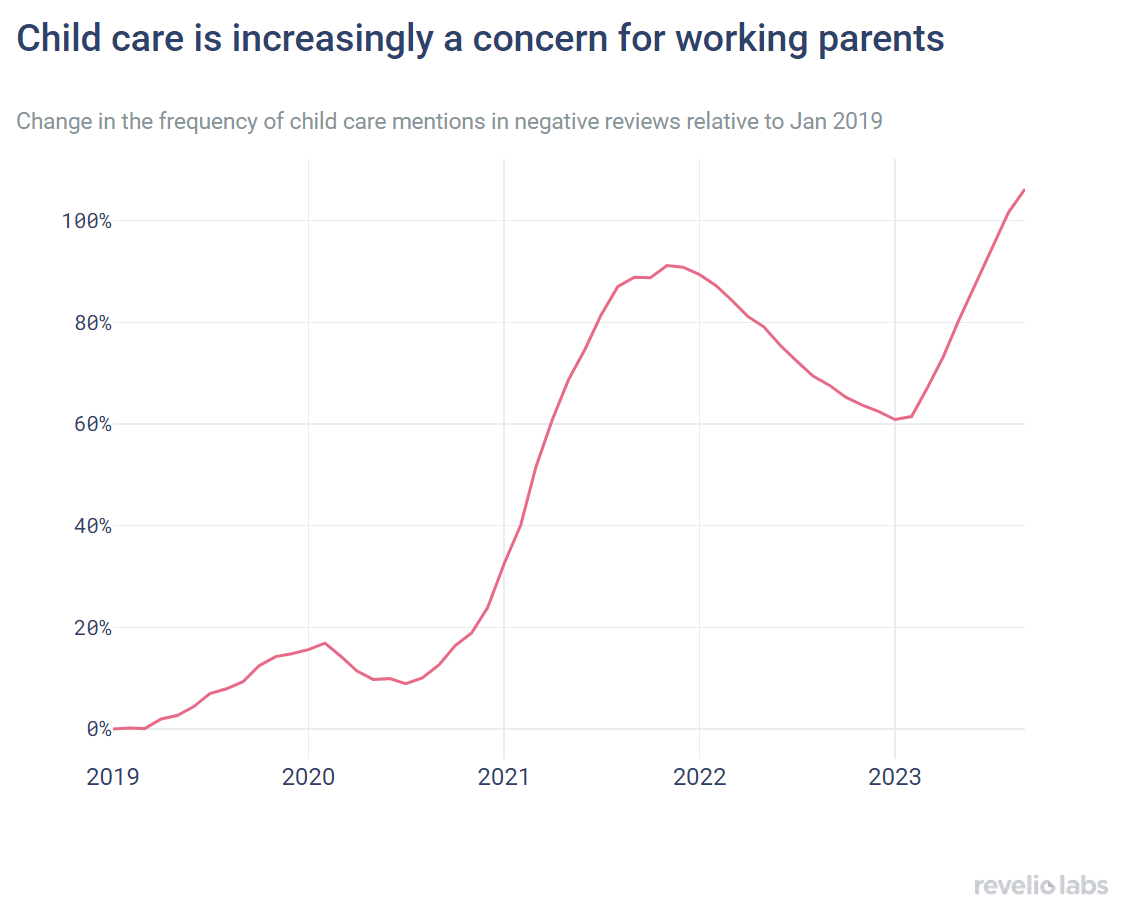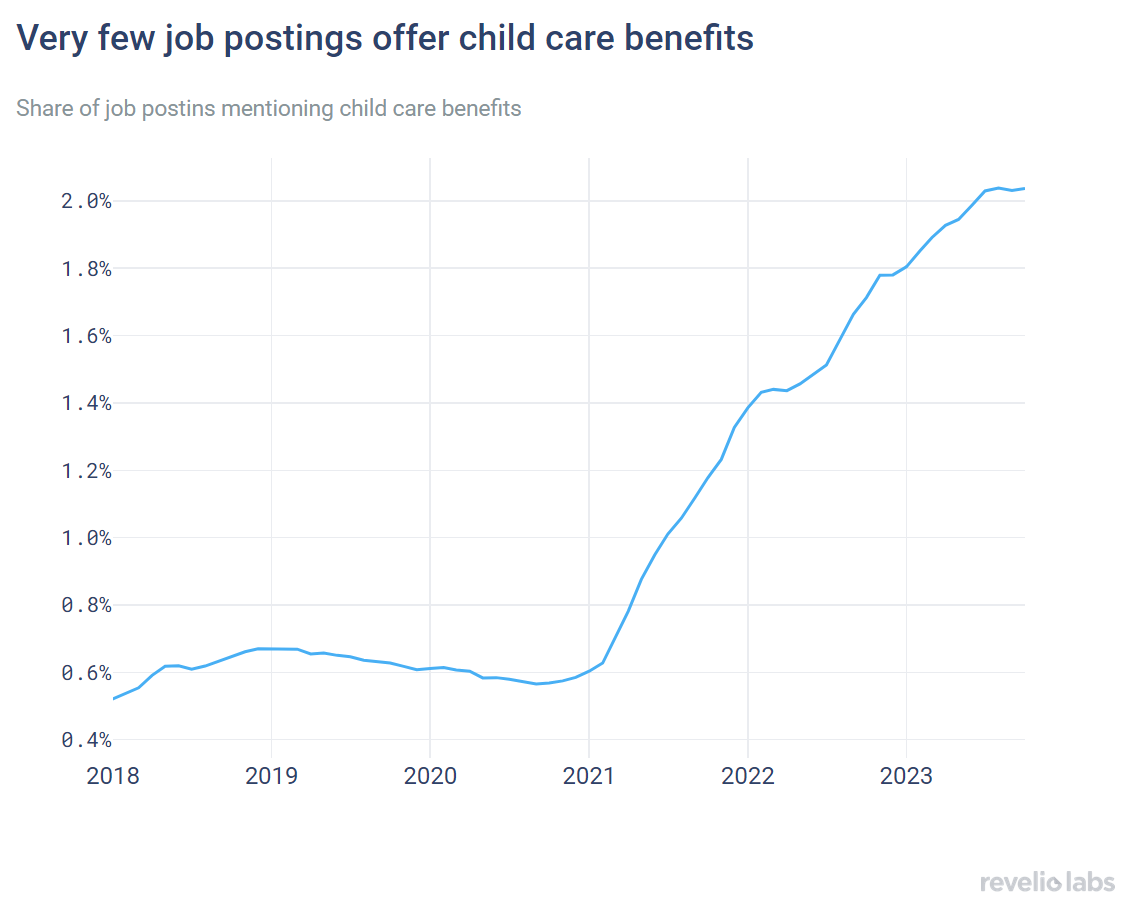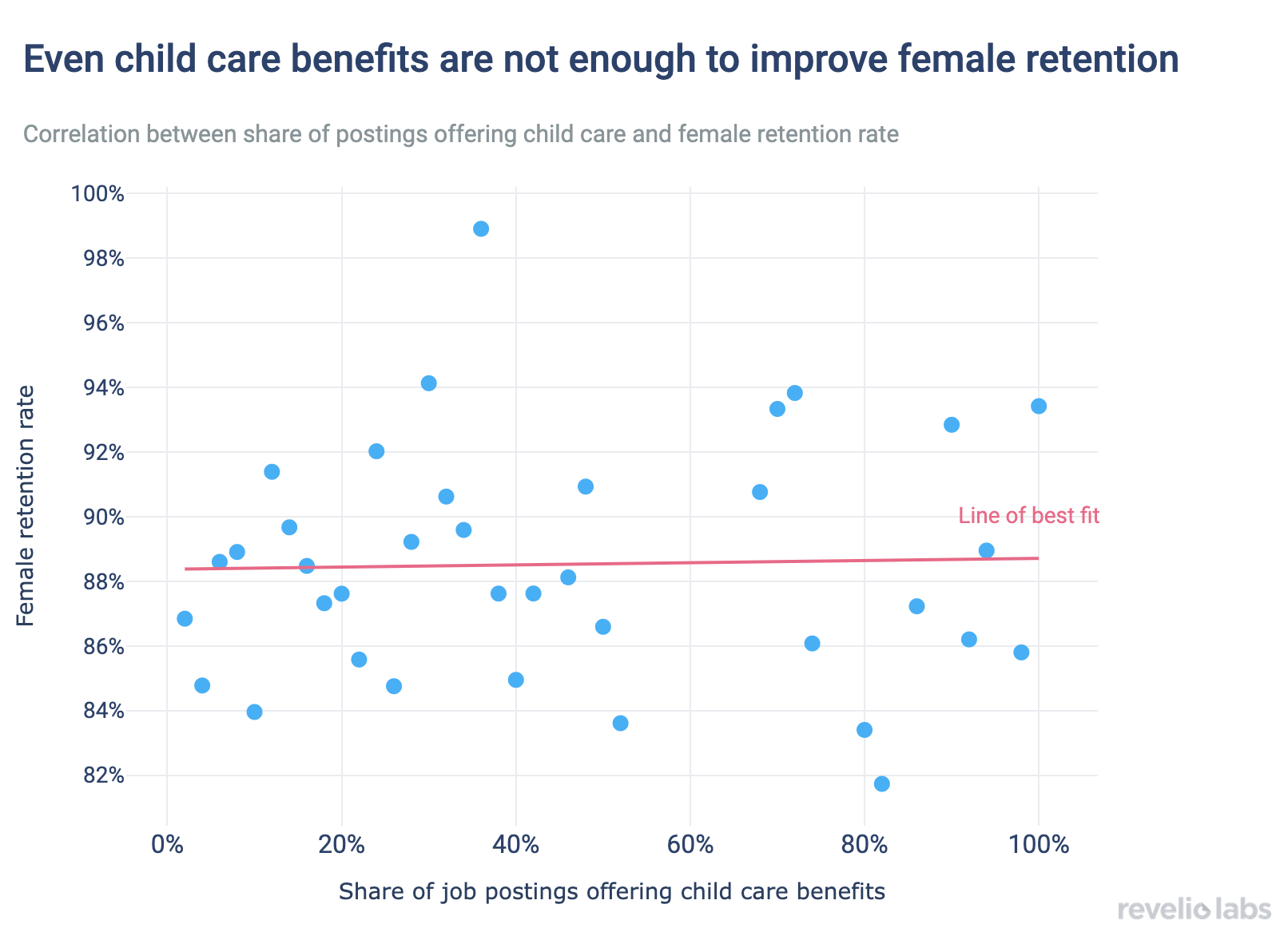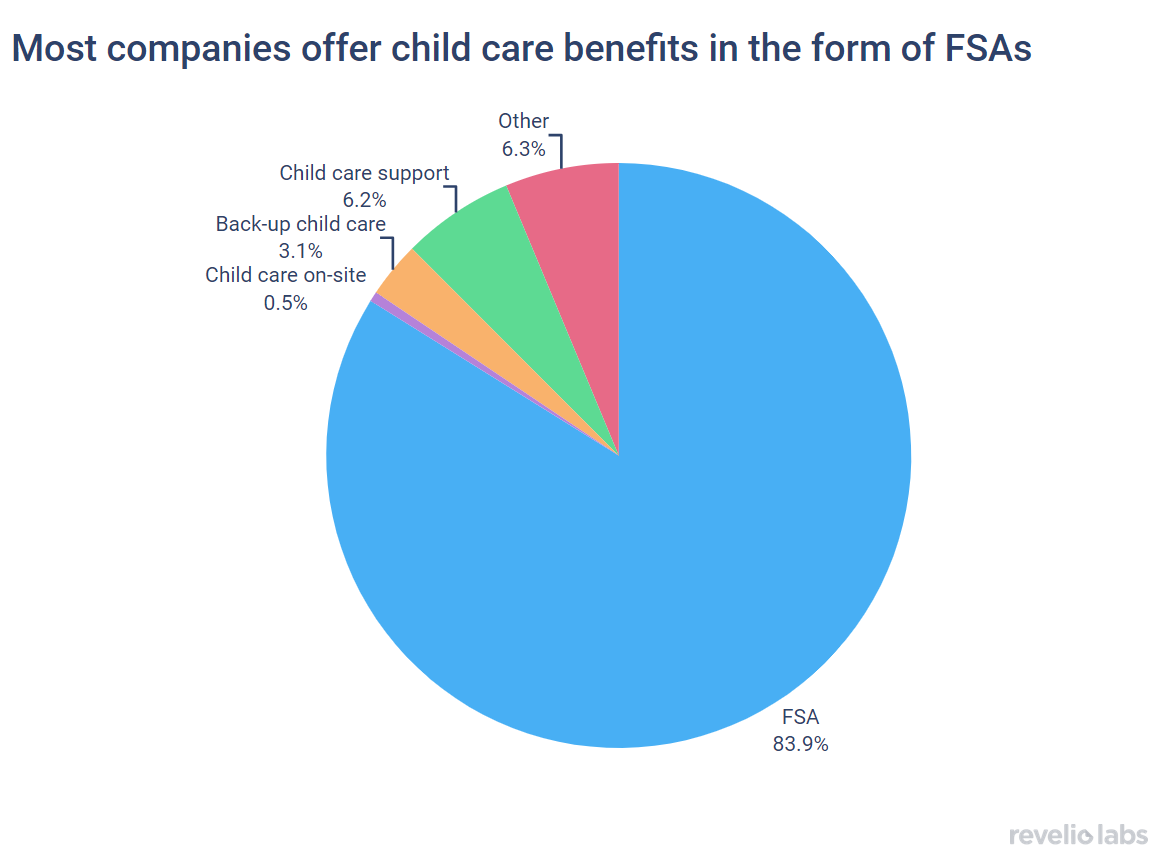Are Current Child Care Benefits Enough to Keep Mothers at Work?
Dependent care flexible spending accounts aren’t cutting it

Although the share of job postings offering child care benefits has been increasing steadily since 2021, it remains very low. Only 2% of job postings in 2023 offer child care benefits.
Offering child care benefits is not correlated with retention of female employees.
This may be due to the fact that most companies offer child care benefits in the form of dependent care flexible spending accounts (FSAs), which do not guarantee spots for children in day care centers or subsidize the high child care costs for parents.
"Who will take care of the kids?" has always been the biggest concern for working parents. Child care is a main determinant of both female participation in the workforce and the career progression of working women. Nobel laureate Claudia Goldin and her co-authors catalyzed the concept of 'parental gender gap', whereby as kids grow older, even if mothers work more hours, they earn less than fathers. As vital as childcare is for the female labor supply, the quest for reliable and affordable child care remains a challenge; child care in the US is neither available nor affordable for most families. Recent changes in the child care market are exacerbating these challenges. Amid these challenges, are companies stepping in to help working parents?
Our HR database systems show that mentions of child care-related words in negative employee reviews have been increasing rapidly since the pandemic. As of August 2023, the number of negative reviews mentioning child care has doubled relative to January 2019.


In response to the child care crisis, more employers have been offering child care benefits. The share of job postings with child care benefits has been increasing steadily since 2021. However, there are still very few jobs that advertise child care benefits. Only a little over 2% of all job postings that we observe offer one or more forms of childcare to prospective employees.


Sign up for our newsletter
Our weekly data driven newsletter provides in-depth analysis of workforce trends and news, delivered straight to your inbox!
Does offering child care benefits help with employee retention - particularly female employee retention? Not really. Revelio Labs has previously shown that the most generous parental benefits did not deter female employees from leaving their jobs amid the closure of child care centers and schools caused by COVID-19. As companies offer more child care benefits, we still find a very weak correlation between the share of jobs that offer child care benefits and female employee retention. A one percentage point increase in the share of postings offering child care benefits only increases retention by 0.003%.


Why is offering child care benefits not helping companies retain their female employees? The answer may lie in the type of benefits offered. More than 80% of jobs advertising child care benefits do so in the form of Dependent Care Flexible Spending Accounts (FSAs), our HR database systems show. Meanwhile, about 6% of job postings that offer child care benefits offer them in the form of financial support, such as discounts on child care or child care subsidies. Only less than 1% of these postings offer a spot in day care center or child care on site.


Dependent care FSAs do not subsidize the rising child care costs. Moreover, other forms of child care support do not address the core problem: the unavailability of spaces in day care centers. Child care will only become less available in the coming months as pandemic era federal support of the child-care sector ends. Next week, Revelio Labs moves our attention to the child care workforce to analyze the child care problem more comprehensively.

